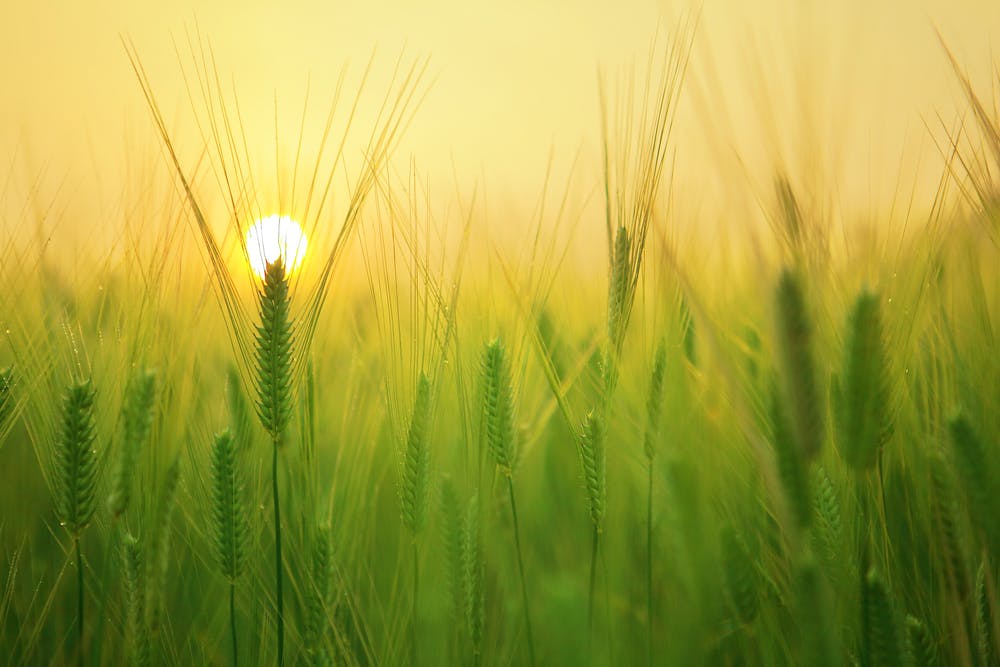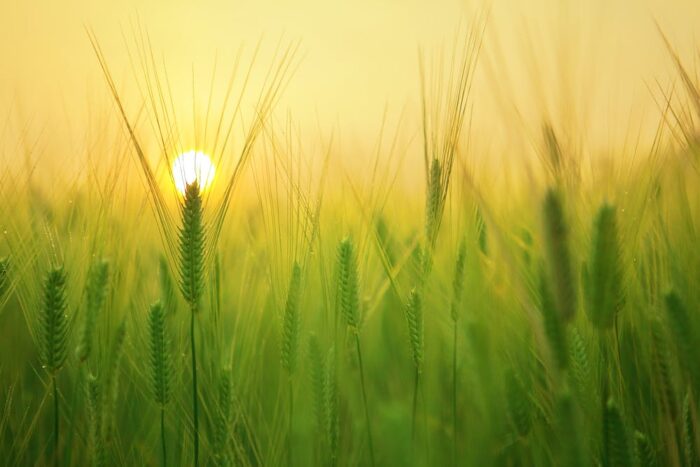The Benefits of Barley Grass


- What is Barley Grass
- Nutrients
- Health Benefits
- Side Effects
What is Barley grass?
Barley grass (Hordeum vulgare, Hordeum distichon) is actually the leaf of the barley plant, as opposed to Barley Grain. It grows in a wide range of climatic conditions and has a mild bitter flavor.
Barley grass is often referred to as a superfood. It is commonly used as an ingredient, along with kale, spinach, wheatgrass and other greens, in juices and as a supplement to boost weight loss, enhance immune function, and support overall health.
According to a study published by the NIH, Barley plays an important role in both health and the evolution of civilization during the human migration from Africa to Asia and later to Eurasia.
Findings show that Barley grain and its grass are functional foods that were a major factor in promoting ancient Babylonian and Egyptian civilizations, Pliocene hominids in Africa and Neanderthals in Europe; all the way to modern civilization.
Nutrients
Barley grass is packed with nearly three dozen vitamins and minerals. It contains high amounts of chlorophyll (nature’s deodorizer), and has strong cleansing powers, improves circulation and increases energy levels. It a great source of fiber, and provides Vitamin A, Vitamin C, Vitamin K, as well as a rich source of a variety of important nutrients, polyphenols and flavonoids.
Health benefits
Barley grass has been associated with several potential health benefits.
Blood Sugar Levels
Some studies suggest that barley grass may help stabilize blood sugar levels, because of its insoluble (does not dissolve in water) fiber content. Because of these properties, it may increase fiber intake, reduce blood sugar levels and improve insulin sensitivity.
Heart Health
Adding barley grass to your diet is a great way to support the health of your heart. In fact, according to one study, taking just 15 grams of barley leaf extract during a 4 week period decreased the oxidation of LDL (bad) cholesterol in diabetic patients
Barley grass contains saponarin, gamma-aminobutyric acid (GABA), and tryptophan; all of which have been linked to decreased blood pressure, reduced inflammation, and improved heart health. Tryptophan is an amino acid that can be converted into several important molecules, including serotonin and melatonin.
Weight Loss
It is no secret that eating more fiber leads to more weight loss, but it also makes it easier to stay on a prescribed diet. Fiber moves slowly through the body, creating a feeling of fullness that may prevent feelings of hunger and curb unhealthy cravings.
Expectorant
As an expectorant, Barley Grass is believed to help loosen and expel phlegm and congestion. The herb is said to be a broncho-dilator and beneficial in cases of asthma, coughs and bronchitis.
Side Effects
Although barley grass is generally safe to consume for most people, there are a few side effects and precautions that you may want to consider.
Some barley grass products may contain high amounts of micronutrients like vitamin K or potassium. Anyone taking blood thinners needs to keep their vitamin K intake consistent to avoid interference with their medications.
Those with kidney disease may need to limit their intake of potassium to keep their blood potassium levels within the normal range
Anyone who has celiac disease or a sensitivity to gluten should exercise caution when purchasing barley grass products. Although gluten is only found in the seeds of barley grain, there could possibly a risk of cross-contamination.
Always talk to a healthcare provider, if you are taking medications or have any underlying health conditions, before using barley grass supplements.
Tags: blood sugar, expectorant, heart health, weight loss
Comments are closed here.